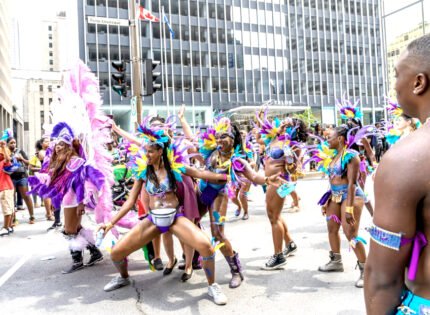Rasta KEITH
Depending on which end of the political spectrum Grenadians find themselves, November 24, 2016 will go down in the annals of history either as a day of infamy or one of the most glorious days of their lives.
Since gaining independence from Great Britain in 1974, there has been the occasional clamour among the Grenadian political elite for a comprehensive reform of the country’s constitution. Proponents for reform have argued for years that the current constitution is a colonialist instrument which the locals had no real part in framing. Thus, it is felt that there is a need to truly repatriate the document by making a number of amendments to better reflect the will of the Grenadian people.
Toward that end, the New National Party (NNP) Government of Dr. Keith Mitchell had proposed making seven amendments to the constitution based on a two-thirds majority vote on any of seven bills. Prime Minister Mitchell was so sure that the “yes side” was going to prevail that he touted the referendum exercise as one of the most significant historical events in the lives of Grenadians for centuries past and to come.
But despite the level of confidence exuded by the Prime Minister and his high-powered team of advisors, the writing was already on the wall. And once the smoke had cleared, it was quite obvious to the government and his Constitutional Review Advisory Committee (CRAC) that they had to regroup and re-strategize for another attempt at constitutional reform some time in the future.
Not only was it the case that less than one-third of the registered voters showed up to vote, but not even one of the seven bills had succeeded in garnering a majority of “yes” votes. This included a bill to change the name of the state to be read as Grenada, Carriacou and Petit Martinique.
As far back as 1763 and most certainly up to the formation of the West Indies Federation of 1958, the smaller islands lying between St. Vincent and Grenada had been apportioned between the two larger islands. Accordingly, the island of Petit St. Vincent and all of the islands lying to the north, known as the Grenadines, have been administered by St. Vincent while all of the islands lying south of Petit St. Vincent were accorded the status of dependencies of Grenada.
Exactly what the term dependency means in the context of the relationship between the mainland island of Grenada and the other islands constituting the state of Grenada might be one of those nebulous arrangements which might be determined only when some smarty pants attorney in one of the islands finds it prospectively lucrative to attempt to test the parameters of the concept in one of the United Nations’ forums having jurisdiction over secessionist matters.
Be that as it may, of the ten member colonies comprising the West Indies Federation, one was St. Vincent and the Grenadines. Another was Grenada which, for all intents and purposes, included the islands of Carriacou and Petit Martinique and all of the other islands lying within the territorial limits of Grenada. Moreover, when Grenada attained its independence in 1974, citizenship of the new nation was bestowed equally on all persons residing on any of the islands constituting the state.
Supporters of the bill to change the name of the state are of the insular opinion that including the names Carriacou and Petit Martinique on the passport and in all other matters relating to the affairs of the state should be regarded as a necessary gesture to establish a more inclusive relationship among the citizens of the state and to encourage a greater sense of national identity among all Grenadians.
But while such a change seems an obvious corollary of the widespread misnomer of referring to Grenada as the “Tri Island State”, it is beyond the realm of reason to figure out how such a disjunction in the polity of the state could foster a deeper sense of belonging to one and the same state.
Since, as recognised by the United Nations and other international conventions, the term Grenada refers both to the name of an inland and also to the name of an archipelagic state called Grenada, of which the island called Grenada is merely but a part, it follows logically that any Grenadian born or residing on any of the islands must already qualify for full Grenadian citizenship.
Thus, the clamour for the bifurcation; nay, trifurcation, of the name of the state as a means of fostering a greater sense of identity among Grenadians must be construed as a red herring. And the unintended consequences of such a move might be realized only after it’s too late to make amends since far from merely being the sum of its parts, THE WHOLE IS [IN FACT] GREATER THAN THE SUM OF ITS PARTS.
Advocates of the “Tri Island State” misnomer attempt to bolster their position by citing the case of the Republic of Trinidad and Tobago as one of the examples of why Grenadians should get on the “monkey see, monkey do” bandwagon and make the desired changes. What is often left out of that equation, however, is that Trinidad and Tobago had existed as separate colonies for most of the colonial period and were joined together in 1889 only when the British found it administratively expedient to do so.
On the contrary, the singularity of the archipelagic state of Grenada could be traced back to the days when the Caribbean region was populated by the native Caribs and Arawaks. And the evidence for the symbiotic relationship among the different islands has become even more preponderating since the country’s attainment of independence.
Suffice it to say, the economies of Grenada, Carriacou and Petit Martinique have been intricately intertwined from time immemorial; come high or low tide. Nurses and doctors throughout the archipelagic state have been stationed among the different islands without distinction as to place of birth. And the sick would be treated anywhere in the state where the best care could be provided.
Police officers from the different islands would be posted anywhere in the 133 square-mile state where duty calls; and all of the islands have shared the same jurisdiction in legal matters. Teachers from the smaller islands are customarily trained on the mainland, and educators and students from any of the islands could work or attend school in any part of the state that suits their liking.
It is equally significant to note that of the seven prime ministers which the country has had since independence, two of them have hailed from the sister isles. Thus, despite the fact that Carriacou and Petit Martinique together account for less than one-twentieth of the total population of the state and just about one-tenth of the total landmass, one-third of the gentlemen occupying the second highest office in the state were not born on the mainland.
It goes without saying, therefore, that the kind of parochialism which had raised its ugly head in the form of the “birther” issue that had hounded President Barack Obama does stand a snowball’s chance in hell of gaining currency in the tiny nation.
Grenadians may one day be given another opportunity to decide whether or not they would prefer to identify as belonging to a single archipelagic state comprising of several islands or whether they would prefer to jump on the “monkey see, monkey do” bandwagon and be tagged by the name of the particular islet on which they happened to have been born or are currently residing.
In this day and age of modern technology, almost everyone seems to derive a strange sense of satisfaction from changing things merely for the sake of being in the latest fashion. But while the apparent paradox that “the only thing that is permanent is change” is an actual truism, it often turns out that the more things change the more they remain the same.
A word to the wise is enough. Thus, in the matter of changing the name of the state of Grenada, the word simply put is that “if the roof ain’t leaking, don’t fix it”.















